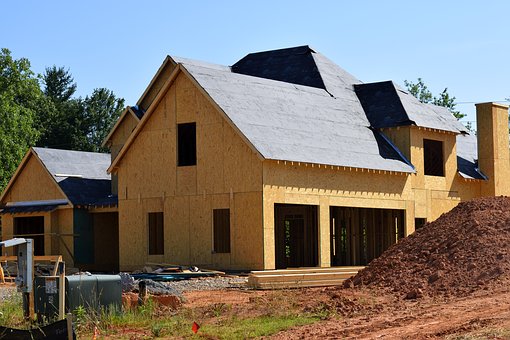When purchasing a new construction home, many people assume that because the home is brand new, everything will be in perfect condition. However, even brand-new homes can have hidden issues that may not be immediately obvious. This is why it’s just as important to have a home inspection performed on a new construction home as it is on an older one.
In this blog post, we’ll discuss why a home inspection for new construction is essential and how it can save you from unexpected headaches in the future.
1. New Doesn’t Always Mean Perfect
While a new construction home may appear flawless, the reality is that it has been built by human hands, and mistakes can happen at any stage of the construction process. From framing to plumbing to electrical work, each component is handled by different contractors and workers, and small errors can sometimes slip through the cracks.
An independent home inspector acts as a fresh set of eyes to catch issues that may have been overlooked or rushed during the construction phase. Without a thorough inspection, these problems may not become apparent until after you’ve moved in, potentially leading to costly repairs or even safety hazards.
2. Construction Defects Are Common
Even with modern building techniques and quality materials, construction defects can occur in new homes. Some common issues found in new construction homes include:
- Structural Defects: Improper framing, uneven floors, or cracks in the foundation can affect the long-term stability of your home.
- Plumbing Issues: Incorrectly installed pipes, leaks, or poor drainage systems can lead to water damage and mold growth.
- Electrical Problems: Faulty wiring, incorrectly installed outlets, or overloaded circuits can pose serious safety risks and lead to electrical failures.
- HVAC Problems: Improper installation of heating, ventilation, and air conditioning systems can cause poor energy efficiency, uneven heating and cooling, and frequent breakdowns.
A professional home inspection will help identify these and other potential issues before they become major problems, allowing you to address them with the builder while the home is still under warranty.
3. Catch Problems Before Your Builder’s Warranty Expires
Most new construction homes come with a builder’s warranty, which typically covers defects in materials and workmanship for a specific period, often one year. Having a home inspection performed before your warranty expires gives you the opportunity to catch any issues that need to be addressed while the builder is still responsible for fixing them.
Without an inspection, you may not notice certain defects or problems until after the warranty has expired, leaving you to cover the cost of repairs yourself. A home inspection ensures you have a complete list of issues to present to the builder, so they can be repaired under warranty before you move in or soon after.
4. Verifies the Quality of Workmanship
Building a new home involves multiple subcontractors and tradespeople, each responsible for a specific aspect of the construction process. While most builders strive to deliver high-quality work, there’s always the possibility that mistakes were made or shortcuts were taken.
A home inspection allows you to verify that the work has been done properly and up to standard. For example, your inspector will check that the roof was installed correctly, windows are sealed properly, and the insulation is adequate. They will also ensure that the appliances, plumbing, and HVAC systems are functioning as they should.
By having an independent third-party inspector review the work, you’ll have peace of mind knowing that your home was built to last and meets your expectations.
5. Avoid Future Repairs and Costs
One of the biggest benefits of having a new construction home inspected is avoiding future repair costs. Even small issues, like a poorly sealed window or a minor plumbing leak, can lead to significant damage over time if left unchecked. By identifying these problems early, you can save yourself from costly repairs and inconvenience in the future.
Moreover, an inspection can help you avoid issues that could affect the resale value of your home. A well-maintained and problem-free home will be more attractive to future buyers, should you decide to sell down the road.
6. Negotiation Leverage with the Builder
A professional home inspection report gives you documentation of any issues that need to be addressed before closing on the home. This report can be a valuable tool for negotiating with the builder. If the inspection reveals significant problems, you can request that the builder make necessary repairs or adjustments before you finalize the sale.
Having the inspection completed before you move in puts you in a better position to hold the builder accountable for any defects and ensure they are fixed to your satisfaction.
Conclusion
Even though new construction homes are brand new, they are not immune to defects and potential issues. A home inspection provides a comprehensive assessment of the property’s condition, giving you peace of mind and protecting your investment. By catching problems early, ensuring code compliance, and verifying the quality of workmanship, an inspection can save you from future headaches and expenses.
If you’re buying a new construction home, don’t skip the inspection! It’s an essential step in ensuring that your dream home is truly ready for you and your family to move into with confidence.


